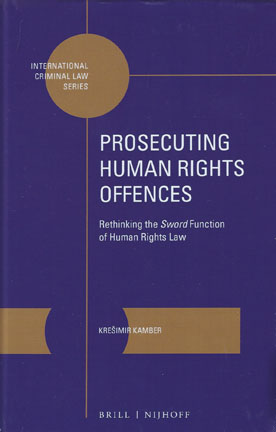
In Prosecuting Human Rights Offences: Rethinking the Sword Function of Human Rights Law the author explores and explains the extent to which the features of the procedural obligation to investigate, prosecute and punish criminal attacks on human rights determine the contemporary understanding of the function of criminal prosecution.
The author provides an innovative and thought-provoking account of the highly topical and largely unexplored topic of the sword function of human rights law. The book contains the first comprehensive and holistic analysis of the procedural obligation to investigate and prosecute human rights offences in the law of the European Convention on Human Rights, which the author puts in the general perspectives of human rights law and criminal procedure.